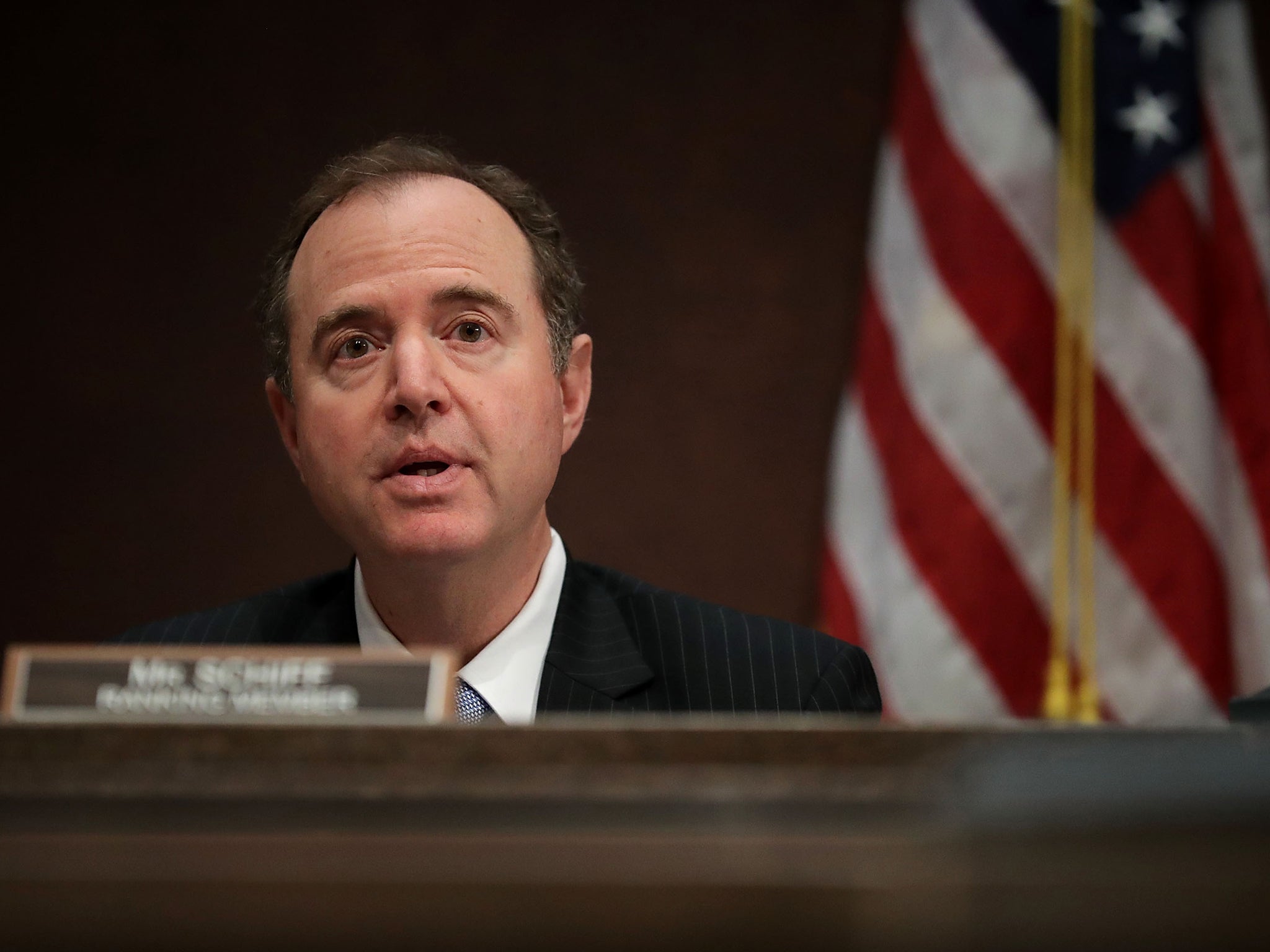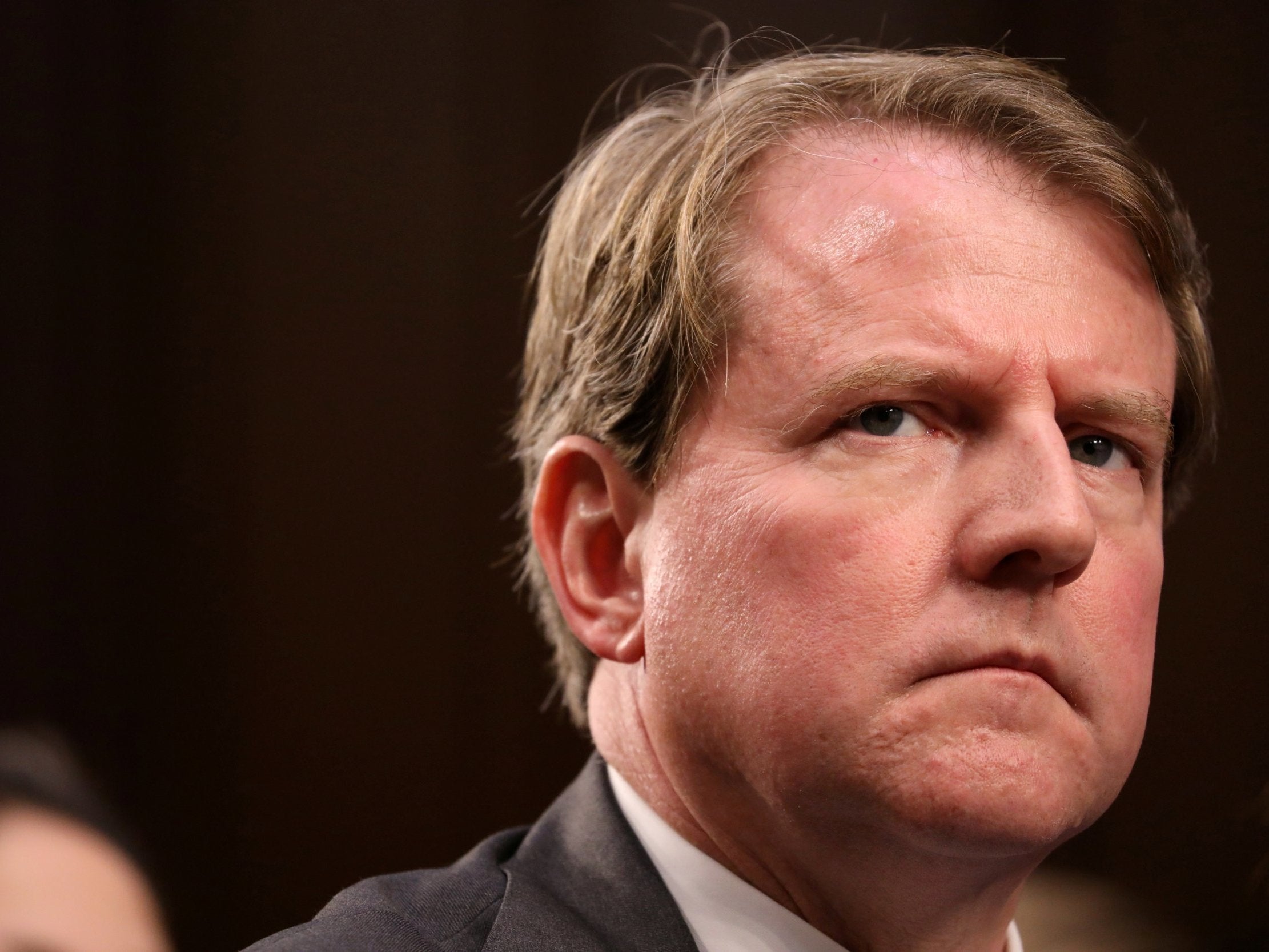Trump ‘winning’ impeachment inquiry despite mounting evidence against him
‘Realistic window for Congress to consider impeaching him is closing’, say experts
Your support helps us to tell the story
From reproductive rights to climate change to Big Tech, The Independent is on the ground when the story is developing. Whether it's investigating the financials of Elon Musk's pro-Trump PAC or producing our latest documentary, 'The A Word', which shines a light on the American women fighting for reproductive rights, we know how important it is to parse out the facts from the messaging.
At such a critical moment in US history, we need reporters on the ground. Your donation allows us to keep sending journalists to speak to both sides of the story.
The Independent is trusted by Americans across the entire political spectrum. And unlike many other quality news outlets, we choose not to lock Americans out of our reporting and analysis with paywalls. We believe quality journalism should be available to everyone, paid for by those who can afford it.
Your support makes all the difference.Critics of US president Donald Trump cheered when a federal judge ruled that the former White House counsel Don McGahn must testify to Congress — and scathingly labelled “fiction” the administration’s arguments that top White House aides are immune from congressional subpoenas.
Indeed, the outcome was the latest in a string of lower-court losses for Mr Trump as he defends his stonewalling of lawmakers’ oversight and the impeachment investigation. Other fights are playing out in the courts over Mr Trump’s financial records and grand-jury evidence in the Russia investigation.
But from a realist perspective, Mr Trump is winning despite losing.
That is because it is now late November — not May, when Mr McGahn, on Mr Trump’s directions, first defied the subpoena, or even August, when the House asked the judge, Ketanji Brown Jackson, to enforce its subpoena.
The proceedings before Ms Jackson consumed nearly a third of the year as she took briefs, conducted oral arguments and then composed a 120-page opinion. And her ruling was merely the end of the first step.
The Justice Department immediately filed an appeal and sought a stay — virtually ensuring that the fight over Mr McGahn will remain bogged down for the foreseeable future. (On Wednesday, Ms Jackson placed a hold on her ruling to consider the stay motion.)
And even if Mr McGahn someday is forced to show up, a new cycle of litigation will inevitably start over whether specific information he might testify about is subject to executive privilege.
Meanwhile, time is on the US president's side. The realistic window for Congress to consider impeaching him is closing, with the 2020 election less than a year away. If the overriding goal is to keep information from coming out while his term and potential re-election hang in the balance, the Trump legal strategy is succeeding despite all the adverse rulings.
“This is not about putting down markers for all time — it’s more about particular short-term objectives,” said Martin Lederman, a Georgetown law professor who worked on executive-power issues as a lawyer in the Justice Department’s Office of Legal Counsel.
Like a football team up late in a game whose defence hangs back to prevent big plays while letting its opponent make shorter gains, Mr Trump’s legal team is looking to run out the clock, putting forth aggressive legal theories often backed by scant precedent. The strategy risks periodic bad headlines in the short term and could lead to definitive rulings that hamstring future presidents — but it is demonstrably advantageous for consuming time.
The theories include asserting that Congress lacks legitimate legislative authority to conduct oversight of whether government officials are engaged in wrongdoing, even though lawmakers have done so for generations; that impeachment investigators cannot gain access to grand-jury evidence, even though an appeals court permitted just that during Watergate; and that senior presidential aides are immune from subpoenas, even though a judge rejected that theory in 2008.

House Democrats have turned to the courts at an unprecedented tempo in their clashes with Trump, and they went into court Tuesday to file yet another case — this one challenging the administration’s defiance of a subpoena for documents about its attempt to add a citizenship question to the 2020 census. But they are also growing disillusioned with the courts as a solution.
The Democrat leading the investigation into the Ukraine affair, senator Adam Schiff, has made clear that lawmakers will move forward with weighing articles of impeachment rather than getting bogged down in courts. He used another sports metaphor, the tactic of boxers who lean against the ring ropes and trick their opponents into exhausting themselves by ineffectively pummelling them.
“We are not willing to go the months and months and months of rope-a-dope in the courts, which the administration would love to do,” Mr Schiff said on NBC’s Meet the Press on Sunday, explaining that he and his colleagues view their investigation as urgent because Mr Trump has solicited foreign interference in the 2020 election. Because of that, Mr Schiff said, they will not wait even for witness testimony and documents they would like to obtain.

Indeed, in another major court development Monday that got far less attention than the McGahn lawsuit, the Supreme Court blocked an appeals court ruling that the House can subpoena Trump’s financial records while the justices consider whether to hear the case — alongside a similar case involving the Manhattan district attorney’s push for such records.
Both cases generated headlines when district court judges and then appeals courts ruled against the president. But if the Supreme Court does take the appeals, justices may issue no final judgment until the court’s term ends in seven months.
Mr Trump suggested he instead had a more principled motive than running out the clock Tuesday, claiming in a series of tweets that he would be happy to let his current and former aides tell Congress what they know, and insisting that he is only blocking them from talking to ensure that “future presidents should in no way be compromised”.
“I am fighting for future presidents and the office of the president,” Mr Trump said. “Other than that, I would actually like people to testify.”
His claim that he is blocking aides from disclosing what they know because he wants to strengthen the institution of the presidency over the long term echoes justifications of other presidents in previous disputes, like the George W Bush administration’s range of efforts to expand presidential power.
The men who drove that Bush agenda — vice president Dick Cheney and his top lawyer, David S Addington, a key leader on the administration legal team — held long-standing ideological views about executive power, said Jack Goldsmith, a Harvard professor who led the Office of Legal Counsel in the Bush administration.
But “that is not true of Trump, I don’t think,” Mr Goldsmith said, noting that attorney general William Barr, who believes in stronger executive power as a lifelong principle, is an exception. Instead, the Trump administration’s legal positions “seem like short-term tactical moves”, Mr Goldsmith said.
Much of the line where Congress’ power stops and the president’s begins is blurry, with few definitive precedents. That ambiguity gives presidents freedom to manoeuvre. But, Mr Goldsmith warned, if an aggressive president pushes an extreme theory all the way to the Supreme Court, it can risk a definitive ruling tying future presidents’ hands.
The danger for the institution of the presidency, Mr Goldsmith said, is that “really aggressive assertions of executive power often end up creating bad executive power precedents.”
To be sure, the US president may also be hoping that the Supreme Court — with its majority of five justices appointed by Republicans now including two by him — could eventually rule for him, just as it ultimately voted, 5-4, to permit a watered-down version of his travel ban even though lower courts had blocked it.
Many administrations have sometimes made privilege and immunity claims to fend off or delay congressional attempts to pry information out of the executive branch, Mr Lederman noted. But prior presidents, unlike Mr Trump, were willing to resolve disputes through negotiation and compromise long before they could reach the Supreme Court.
“If the Supreme Court justices decide they want to drag these disputes out, they can,” Mr Lederman said.
The New York Times

Join our commenting forum
Join thought-provoking conversations, follow other Independent readers and see their replies
Comments